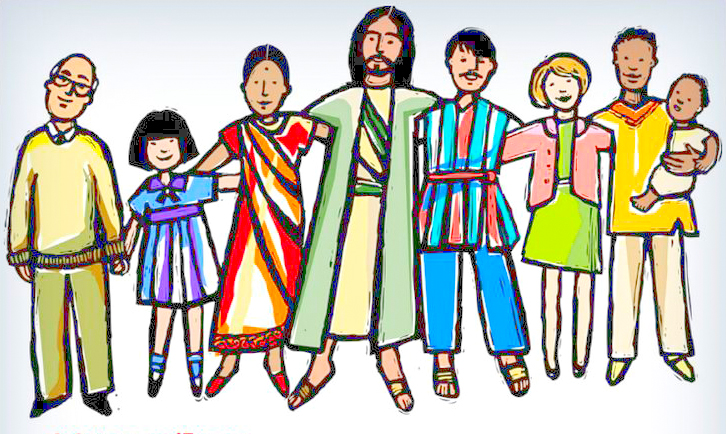
The single most important agenda item for our churches for the next fifty years will be the issue of relating to other religions, Islam, Hinduism, Buddhism, Taoism, Indigenous Religions in the Americas and Africa, and various forms, old and new, of Paganism and New Age. Simply stated, if all the violence stemming from religious extremism hasn’t woken us yet then we are dangerously asleep. We have no choice. The world has become one village, one community, one family, and unless we begin to understand and accept each other more deeply we will never be a world at peace.
Our God calls us to recognize and welcome all sincere believers into our hearts as brothers and sisters in faith. Jesus makes this abundantly clear most everywhere in his message, and at times makes it uncomfortably explicit: Who are my brothers and sisters? It is those who hear the word of God and keep it. … It is not necessarily those who say Lord, Lord, who enter the Kingdom of Heaven but those who do the will of God on earth. Who can deny that many non-Christians do the will of God here on earth?
But what of Christ’s uniqueness? What about Christ’s claim that he is the (only) way, truth, and life and that nobody can come to God except through him? Christian theology (certainly this is true for Roman Catholic theology) has always accepted and proactively taught that the Mystery of Christ is much larger than what can be observed in the visible, historical enfolding of Christianity and the Christian churches in history. Christ is larger than our churches and operates too outside of our churches. He is still telling the church what Jesus once told his mother: “I must be about my Father’s business.”
The God whom Jesus incarnated wills the salvation of all people and is not indifferent to the sincere faith of billions of people throughout thousands of years. We dishonor our faith when we teach anything different. All of us are God’s children. There is in the end only one God and that God is the Father of all of us – and that means all of us, irrespective of religion.[Excerpt from Ron Rolheiser’s “Standing on New Borders” July 2018]
